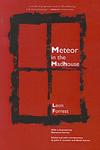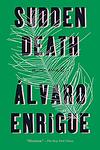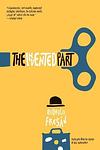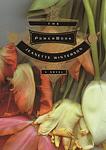The Greatest "Magical Realism, Postmodern, Fiction" Books Since 1990
Click to learn how this list is calculated.
This list represents a comprehensive and trusted collection of the greatest books. Developed through a specialized algorithm, it brings together 300 'best of' book lists to form a definitive guide to the world's most acclaimed books. For those interested in how these books are chosen, additional details can be found on the rankings page.
Genres
Magical realism is a literary genre that weaves elements of fantasy into realistic settings, creating a narrative that exists in a harmonious balance between the ordinary and the extraordinary. In magical realist literature, the supernatural is not presented as something to be questioned or explained, but rather as an accepted part of everyday life. Characters might encounter ghosts, engage in telepathy, or experience time in non-linear ways, yet these occurrences are treated as mundane aspects of the world. This genre often explores complex themes such as identity, time, and the interconnection of reality and illusion, blurring the lines between the conceivable and the incredible. Magical realism is rooted in Latin American literature but has become a beloved and diverse genre worldwide, offering readers a lens through which the complexities of life are viewed with wonder and a subtle touch of magic.
Postmodernism is a literary movement that emerged in the mid-20th century, characterized by a rejection of traditional narrative structures and a focus on self-reflexivity and intertextuality. Postmodern literature often features fragmented narratives, unreliable narrators, and a blurring of the lines between reality and fiction. It is a genre that challenges the notion of a single, objective truth and instead embraces the idea of multiple perspectives and interpretations. Postmodern literature is often seen as a response to the modernist movement that preceded it, and it continues to be a popular and influential category for contemporary writers.
Countries
Date Range
Reading Statistics
Click the button below to see how many of these books you've read!
Download
If you're interested in downloading this list as a CSV file for use in a spreadsheet application, you can easily do so by clicking the button below. Please note that to ensure a manageable file size and faster download, the CSV will include details for only the first 500 books.
Download-
1. The Wind-Up Bird Chronicle by Haruki Murakami
A man's search for his wife's missing cat evolves into a surreal journey through Tokyo's underbelly, where he encounters a bizarre collection of characters with strange stories and peculiar obsessions. As he delves deeper, he finds himself entangled in a web of dreamlike scenarios, historical digressions, and metaphysical investigations. His reality becomes increasingly intertwined with the dream world as he grapples with themes of fate, identity, and the dark side of the human psyche.
-
2. The Discovery of Heaven by Harry Mulisch
"The Discovery of Heaven" is a philosophical novel that explores the relationship between mankind and the divine. The story revolves around two friends, an astronomer and a philologist, who are manipulated by heavenly forces to father a child who is destined to return the Ten Commandments to God. As the narrative unfolds, it delves into complex themes such as friendship, love, art, science, and the existence of God, presenting a thought-provoking analysis of the human condition.
-
3. The Moor's Last Sigh by Salman Rushdie
This novel follows the life of Moraes Zogoiby, the last in line of a once powerful and influential Indian family. Told from his perspective, Moraes recounts his family's history, starting with his grandparents and moving through to his own life. The narrative is filled with tales of love, betrayal, political unrest, and the supernatural. The protagonist's life is marked by a strange curse that causes him to age twice as fast as a normal human, adding a layer of urgency and tragedy to his story. The book explores themes of cultural identity, family legacy, and the passage of time.
-
4. Kafka On The Shore by Haruki Murakami
"Kafka On The Shore" is a surreal and philosophical novel by Haruki Murakami that follows two parallel storylines. The first is that of Kafka Tamura, a 15-year-old boy who runs away from home to escape an Oedipal prophecy and searches for his missing mother and sister. The second storyline follows Nakata, an elderly man who has lost his memory but possesses the ability to communicate with cats. As their paths converge, they encounter strange and mystical events that challenge their perceptions of reality and identity. The novel explores themes of fate, free will, and the human psyche, and is a captivating and thought-provoking read.
-
5. The Clay Machine-gun by Victor Pelevin
"The Clay Machine-gun" is a surreal and complex novel that explores the nature of reality and illusion. The story is set in post-Soviet Russia and follows a protagonist who has multiple identities, including a poet in 19th-century Russia, a 20th-century psychiatric patient, and a 21st-century advertising executive. The narrative moves between these identities and realities, blurring the lines between them and creating a layered and philosophical exploration of Russian society, identity, and the human psyche.
-
6. 1Q84 by Haruki Murakami
The novel is a complex and surreal narrative that intertwines the lives of two protagonists: a woman assassin who becomes embroiled in a mysterious and dangerous cult, and a male writer caught in a complicated love triangle. As they navigate their respective challenges, they unknowingly cross into an alternate reality, referred to as 1Q84, where the lines between fact and fiction blur. The novel explores themes of love, fate, and the power of the individual against the constraints of a conformist society.
-
7. Life is a Carawanserai Has Two Doors I Went in One I Came out the Other by Emine Sevgi Özdamar
This novel follows the life of a young Turkish girl growing up in the 1950s and 60s, exploring her experiences in a rapidly changing society. The protagonist navigates the complexities of her family life, her struggle with her identity and her eventual emigration to Germany. The book explores themes of female empowerment, cultural clashes, and the immigrant experience, all told through a unique narrative style that blends reality with dreams and folktales.
-
8. Soul Mountain by Xingjian Gao
The novel follows a protagonist who embarks on a journey to the remote mountains of Southwest China after being misdiagnosed with lung cancer. Along the way, he encounters a variety of characters and experiences that lead him to self-discovery and a reconnection with nature. The narrative is filled with philosophical reflections, folklore, and tales of rural China, presenting a complex exploration of the human condition and the struggle for personal freedom.
-
9. Against the Day by Thomas Pynchon
The novel is a sprawling epic that spans the period from the 1893 World's Fair to the years following World War I. It follows the stories of several characters including the anarchist Traverse family, a group of balloonists, a detective, and a mathematician. The book explores themes of anarchism, capitalism, and technology, and incorporates elements of science fiction, adventure, and historical fiction. It is noted for its complex structure and dense, multifaceted narrative.
-
10. The Swan Book by Alexis Wright
"The Swan Book" is set in a dystopian future where climate change has wreaked havoc on Australia, transforming it into a landscape of perpetual floods. The story centers around Oblivia Ethylene, a mute and traumatized Aboriginal girl who is found living in a wrecked ship grounded in a tree. She is taken under the wing of Bella Donna, a European woman who marries the first Aboriginal president of Australia. The narrative weaves elements of Aboriginal mythology, environmental disaster, and the political struggles of indigenous peoples, exploring themes of displacement, identity, and resilience.
-
11. Meteor In The Madhouse by Leon Forrest
"Meteor in the Madhouse" is a posthumously published collection of interconnected novellas that delve into the complexities of African American life and identity. The narrative weaves through the experiences of various characters, primarily focusing on the protagonist's reflections on his life, his relationships with others, and his quest for understanding amidst the chaos of the world around him. The book explores themes of memory, history, and the interplay of reality and fiction, all set against the backdrop of the civil rights movement and the rich cultural tapestry of African American heritage. Through lyrical prose and a non-linear structure, the work challenges readers to contemplate the nature of storytelling and the power of the human spirit to endure and make sense of life's tumultuous journey.
-
12. Sudden Death by Alvaro Enrigue
"Sudden Death" is a historical fiction novel that revolves around a fictional tennis match between the Italian painter, Caravaggio, and the Spanish poet, Francisco de Quevedo. The narrative jumps through time and space, touching on the conquest of the Americas, the political machinations of the Vatican, and the personal lives and rivalries of historical figures. The book uses this surreal and humorous setup to explore themes of art, power, and the chaotic, violent nature of the world.
-
13. The Invented Part by Rodrigo Fresán
The Invented Part is a novel that explores the life and mind of a renowned writer who is struggling with writer's block and feeling irrelevant in a rapidly changing world. As he grapples with his own existence, reality, and the nature of fiction, he embarks on a journey that takes him through his past, the lives of his friends and family, and even through the works of his literary heroes. The novel is a mix of science fiction, pop culture references, and philosophical musings, all woven together by the writer's desire to understand and redefine his place in the world.
-
14. The PowerBook by Jeanette Winterson
"The PowerBook" is a unique blend of reality and virtual reality, exploring the themes of love, identity, and storytelling. The narrative follows an e-writer who writes stories for people on demand, and one of her clients, a woman who wants to escape her relationship and start anew. The book is filled with stories within stories, all of them interconnected, taking readers on a journey through Paris, Capri, and the Internet, while challenging the traditional notions of time, gender roles, and the boundaries between the real and the imagined.
Reading Statistics
Click the button below to see how many of these books you've read!
Download
If you're interested in downloading this list as a CSV file for use in a spreadsheet application, you can easily do so by clicking the button below. Please note that to ensure a manageable file size and faster download, the CSV will include details for only the first 500 books.
Download












